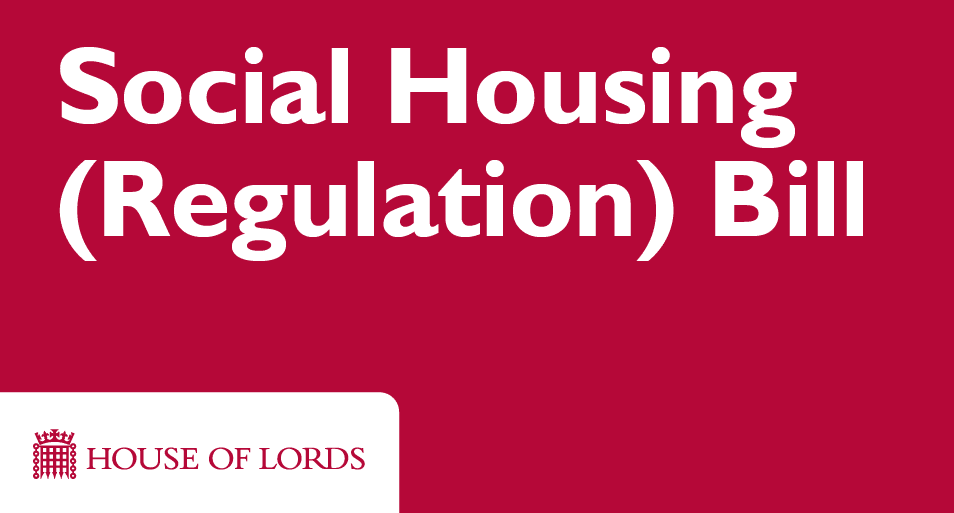Why a Stable Government is Essential for Social Housing to Meet its Challenges
In the ever-evolving landscape of social housing, stability within the government is a cornerstone that ensures the sector can effectively address its numerous challenges. The turbulent political climate of recent years, marked by inconsistent housing policies and a rapid turnover of housing ministers, has left many in the sector grappling with uncertainty. A recent Mobysoft survey underscored this concern, with 1 in 3 housing association executives identifying the lack of policy clarity as their top challenges. As the 2024 general election approaches, where a change in the political party in power is almost inevitable, we explore how a new government can provide the stability and confidence the social housing sector needs.

Addressing Policy Inconsistencies
One of the most pressing issues that the social housing sector has faced during the current Conservative government’s tenure is the lack of continuity in housing policy. Some might even describe it as haphazard, characterised by abrupt changes to key personnel – there have been no fewer than 15 housing ministers since 2010 for example – and a lack of a clear long-term vision. This volatility has made it challenging for housing providers to plan and invest in the future with confidence.
To quell this uncertainty, any incoming government, such as a potential Labour administration, should prioritise providing clear and consistent housing policies. Quick wins in this area could include:
Policy Continuity
Commit to maintaining key policies that have already been set in motion. This will demonstrate a commitment to continuity and reassure the sector that changes won’t be discarded with each change of government. By defining rent setting and sticking to it, landlords will be better placed to plan for the future and deliver the demands of the Social Housing (Regulation) act.
For instance, the recently enacted Social Housing (Regulation) Act 2023 introduces many new obligations landlords will have to follow while giving more powers to the Regulator of Social Housing (RSH) and the Housing Ombudsman. Although this act was six years in the making, it could be viewed as a reactionary measure coming in the wake of the Grenfell tragedy. With policy continuity, social landlords would not suddenly have to contend with a raft of new legislation that, in some parts, is contradictory to what preceded it.
Long-Term Vision
Developing a comprehensive, long-term housing strategy is paramount for any incoming government. This strategy should provide a roadmap and investing/funding approach for the sector’s growth and evolution over the next decade, encompassing areas such as affordable housing targets, rent controls, and carbon neutrality.
For instance, in England, social housing must reach an Energy Performance Certificate (EPC) rating of C or above by 2030, and net zero by 2050. Similarly, the Scottish Government’s Energy Efficiency Standard for Social Housing sets ambitious targets for all homes to reach EPC B by the end of December 2035 and net zero emissions by 2045. While these represent long-term thinking, it relates to just one areas of challenge faced by the sector – a more holistic approach is needed to rising eviction rates and the decline in the number social housing properties available.
Better Stakeholder Engagement
Actively involving social housing providers, tenant representatives, and industry experts in policymaking process is crucial. This ensures that policies are practical, well-informed, and aligned with the sector’s needs. Whilst happens to an extent currently via a number of organisations such as CIH, NHF and other public bodies, more could be done when assessing the real-world impact on housing providers that any legislative changes may have.
For instance, the recent ‘Make Things Right’ campaign from the government aimed to increase awareness of the ways tenants can address and raise concerns with landlords but whilst it provided additional clarity for tenants, it resulted in wave of additional cases that put pressures on landlords they couldn’t prepare for. This in turn created a fertile breeding ground for rushed resolutions on the part of landlords and potentially risked more complaints around call handling and case management (as social housing providers simply weren’t ready for the increase in volume).

Brexit Uncertainties
Brexit introduced an additional layer of uncertainty for the social housing sector, particularly concerning the availability of labour and materials. Whilst the backlog of repairs resulting from the pandemic has been addressed, landlords have still struggled with retaining and recruiting colleagues to continue to meet the demand, with Brexit potentially having an influence on the availability of staffing resource. To address these challenges effectively, a new government should consider the following undertakings:
Support & Investment
Historically, housing associations have continued to build homes through times of economic uncertainty (and did so during the last recession where private developers could not). With support and flexibility from government, they can continue to do so. Funding for housing from the government is currently focused almost exclusively on homes for sale, with billions allocated to private developers to offer ‘affordable homes’ for first-time buyers. In order to stand any chance of tackling the current housing crisis however, an incoming government needs to significantly increase investment in social housing, regardless of the uncertainty Brexit brings.
Regulatory Alignment
Work closely with housing associations to ensure that post-Brexit regulations do not hinder the supply chains and procurement operations employed by the sector. Whilst the majority of pre-Brexit legislation pertaining to the aforementioned will not change and are in the process of merely being duplicated within the UK (border controls relating to customs controls of products originating in the EU for example) there is an opportunity to be had in streamlining regulatory processes and minimising bureaucratic obstacles.

Social Housing Regulation
Effective regulation is vital for maintaining quality standards within the social housing sector. However, regulatory requirements should support and reinforce the good work that landlords do and, perhaps most importantly, avoid being seen as a box ticking exercise or chore that stifles delivering the services that customers really want and need. To address this challenge, the government can consider:
Clear and Transparent Regulatory Frameworks
Developing clear and transparent regulatory frameworks that provide guidance without stifling innovation and efficiency is key. Housing providers should have a straightforward understanding of their compliance obligations and criteria they are required to meet should be clearly communicated and not left open to interpretation. For instance, the RSH’s recently implemented Tenant Satisfaction Measures are undoubtedly a positive step in ensuring tenants are treated fairly and equitably. However, some of the measures are somewhat vague, and clearer instructions, particularly regarding obligatory reporting on key TSM metrics by landlords, are required to remove any ambiguity.
Regular Consultations
Establishing regular consultations between regulators and the sector to gather feedback and make necessary adjustments to regulations is imperative. Whilst there are multiple ongoing dialogues between government bodies such as the RSH, Housing Ombudsman, and Department for Levelling Up, Housing and Communities and the likes of CIH, NHF, not to mention organisations such as Shelter, there is often ‘too much noise’ around specific issues. This can lead to a lack of clarity and direction and can give rise to regulatory environment that is reactionary rather than responsive.
Given the topsy-turvy nature of housing policy over the past few years, coupled with seismic events such as Grenfell and the tragic death of Awaab Ishak influencing regulation within the sector, it’s evident that stable government is essential for the social housing sector to meet its challenges effectively. As we approach the 2024 general election, housing providers and tenants alike will be looking for clear policy direction, effective Brexit management, sensible regulation, and secure funding commitments. By implementing quick wins and long-term strategies in these areas, an incoming government can create an environment where the social housing sector can thrive and continue to provide vital services to communities across the UK.
- Social Housing 2025: The Experts Predict What’s Next - January 2, 2025
- This Month In Social Housing: November 2024 - December 3, 2024
- Leveraging AI in Social Housing: Building a Data Strategy for Enhanced Compliance and Efficiency - November 26, 2024